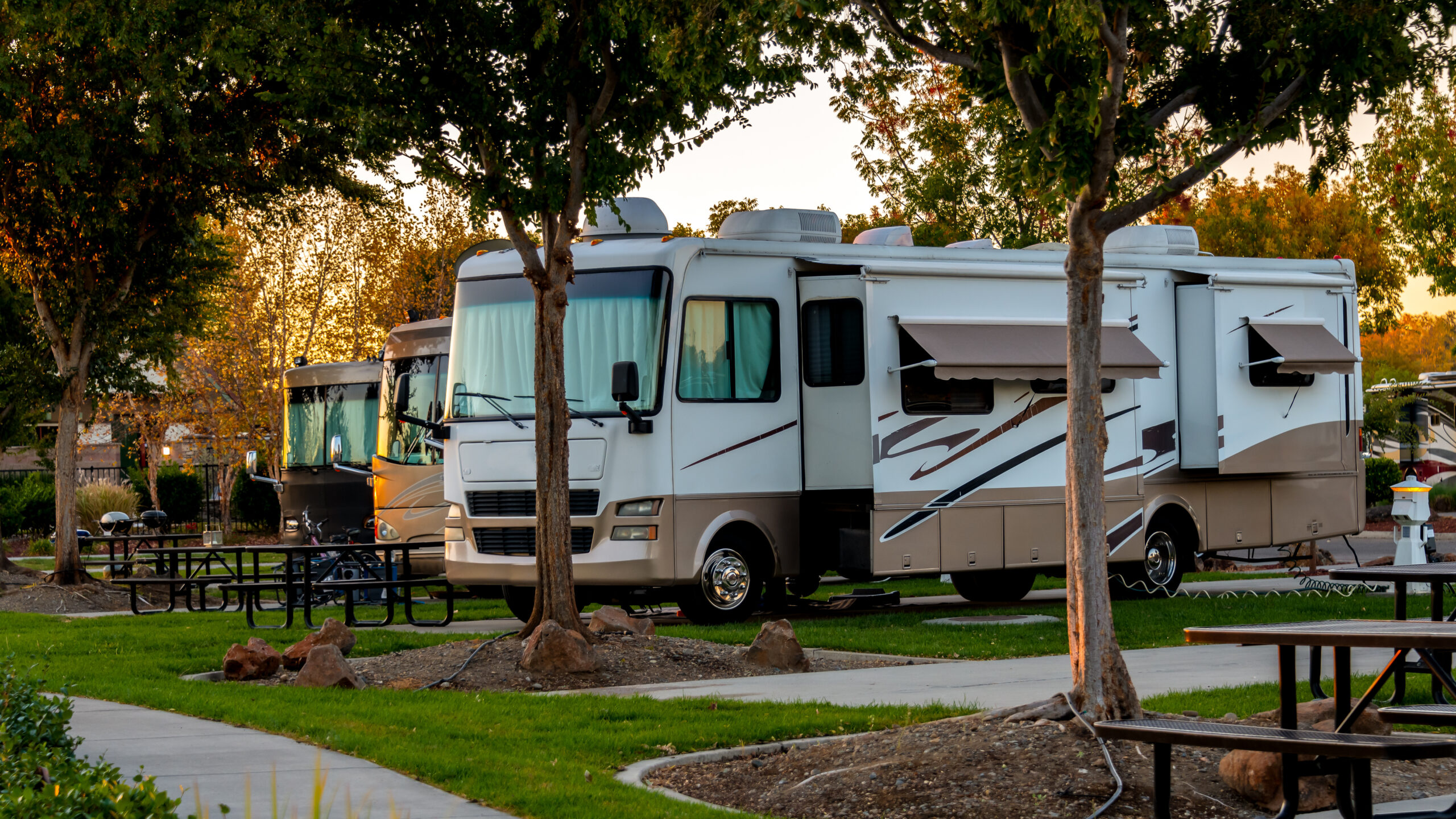It’s important to take some precautionary measures to protect the valuables kept inside your RV, as well as the RV itself, so follow these security tips.
Keep valuables out of sight.
This seems straightforward, but it is important not to offer any temptation to potential thieves. With more people choosing to work or attend school remotely, there are more valuable electronics such as laptops and tablets than ever available at campgrounds. Not to mention cell phones, smart watches, and digital cameras. Personal jewelry, passports, wallets, and televisions also top the list of items you do not want to lose. Keep these valuable items stored away, preferably in a safe place, and out of sight when you are away from the campsite.
Draw the blinds so that nobody can see the interior of your RV while you’re gone, too (which helps with temperature control as well). For valuable items stored outside, such as bikes, ATVs, or watercraft, make sure those items are somehow locked up and chained to something permanent at the campsite itself.
Utilize or install security features.
RVs come with basic locks. In fact, many RV brands use only two or three different keys for their RVs through a certain span of production. So, for extra security, it may be time to make some upgrades and make it even harder on thieves to get in. You may want to change the lock and key it to a different key unique to your RV; you may want to use a keycode instead of a key entirely. There are dozens of mobile security systems with various price points. Wireless systems can send alerts and video footage to your phone in real-time.
Motion detector lights can also come in handy during nighttime hours. And although no hitch lock on a towable RV is completely impervious, they can make it much harder on individuals trying to take your trailer. There are many options available on the market, of various price ranges. It’s a low-cost investment to make to better protect your larger investment.
Research your destination.
Take the time to research your anticipated destination. Not just the campground, but the surrounding communities. Check your route, too, to see if you’ll be going through any questionable areas. Look at online reviews, both the good and the bad, to get a better understanding of where you’re going to be parking your RV. Where is the campground located – in the middle of nowhere or backed up to a busy road? Do all of this before you book your site.
Check with the campground.
Speak with the campground, prior to booking if able, about their security measures. What are their rules and hours for visitors? Is there a security guard during any part of the day or night? What is the campground’s policies on stolen or damaged items?
Camp with other people.
When you camp with other people, whether you’re sharing a site or you have linking sites, the chances are someone is always going to be around. This reduces the risk of unwelcome visitors making themselves at home in your RV or trying to take it for themselves.
Review insurance policies.
Does your standard RV insurance cover the loss of personal property if something is stolen? Does it cover you when there is damage to your RV or if your RV is stolen altogether? Regardless, be sure to take photos of all of your high-value items and your RV’s interior and exterior, so that you can have them ready to provide to the insurance company if needed. Comprehensive coverage protects against vandalism and theft. Personal contents coverage typically needs to be added on, and you can schedule your valuable belongings similar to a homeowner’s policy, complete with appropriate documentation.
Your coverage may also depend on how often you spend nights on the road. Adding your RV to your automotive policy may be suitable for infrequent campers, but a policy specific for your RV from a company that exclusively covers RVs may offer more for those who camp regularly or full-time.
Although the majority of campgrounds and the people staying within them are respectful of personal property and personal safety, there is always the chance that a bad apple is lurking. Utilize existing security devices, make upgrades as you see fit, and make smart decisions regarding where you camp and where you keep your valuable items when you’re not present at the camper. Take precautions but don’t fret. By covering your bases in anticipation of such events, you’ll be in good shape to preserve your RV lifestyle.

